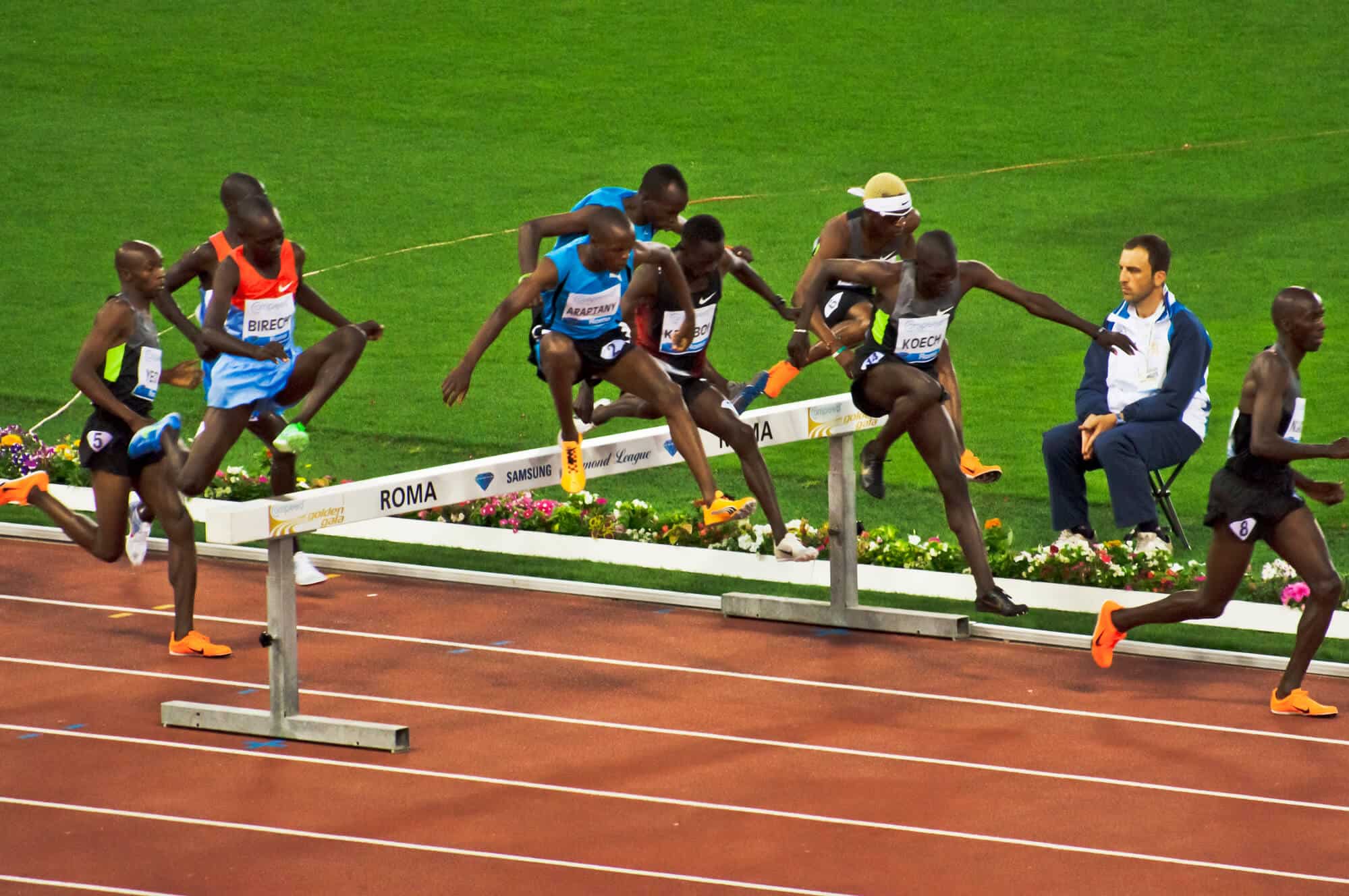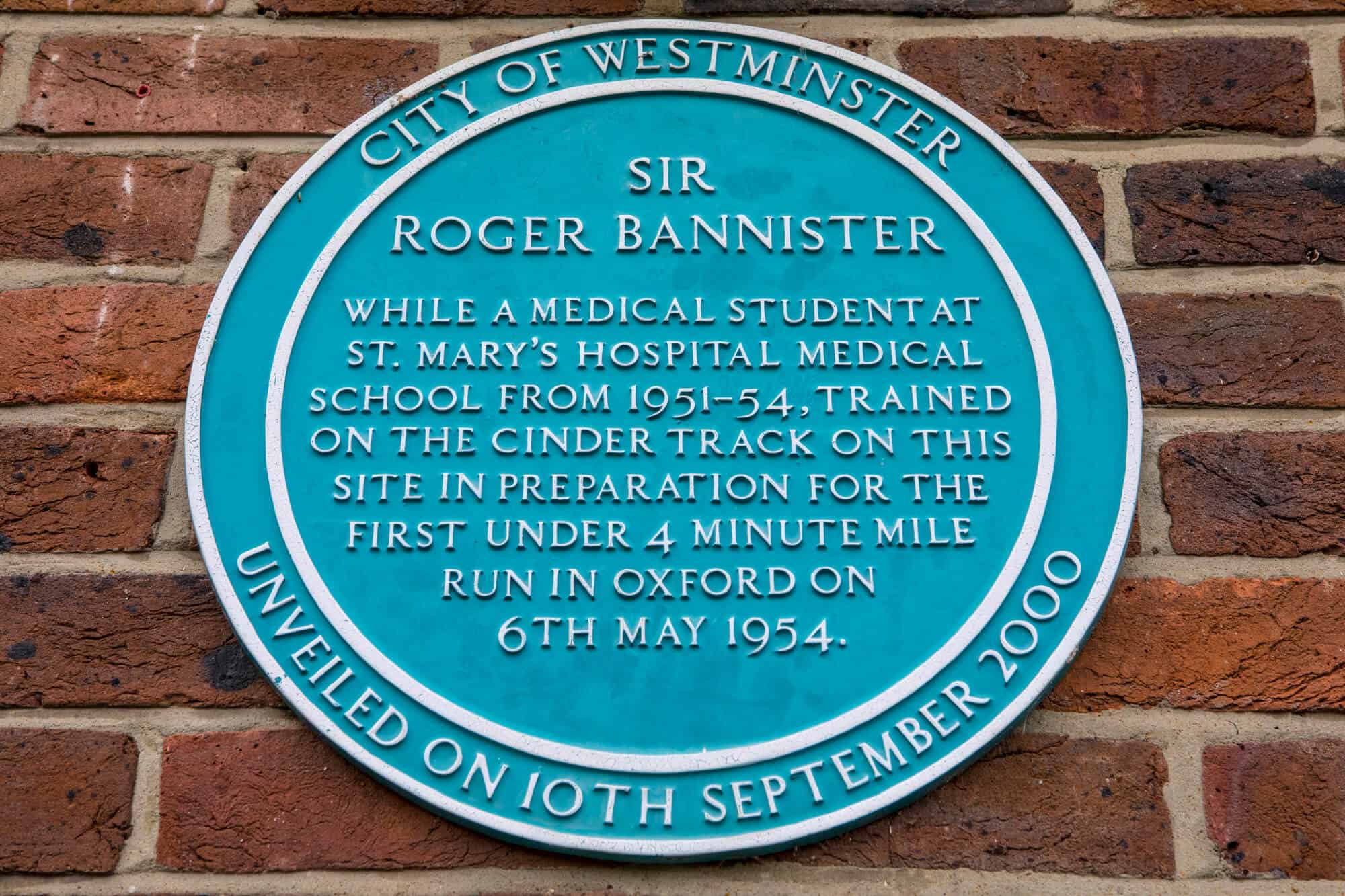Many people throughout history conquered the impossible and paved the way for those who came after them to break the boundaries that were once unthinkable! And when it comes to running, one name will always shine in history as “the man that changed the sport forever!”
Sir Roger Gilbert Bannister is not only a successful runner and a neurologist, but he’s also one of the greatest sporting inspirations of his generation: The Roger Bannister Effect.
In today’s article, we’ll walk you through the backstory behind this phenomenon and how Roger Bannister broke the psychological barriers of what humans can do. So without further ado, let’s dive right in!
What Is the Roger Bannister Effect?
The Roger Bannister Effect is a phenomenon that describes someone who was capable of doing something that was deemed impossible to do, which encouraged many people to follow through after breaking the psychological barrier.
The effect was named after Roger Bannister, the British track and field icon who was capable of running the first ever 1 mile under 4 minutes, despite being touted as a physiologically impossible feat at his time. This happened on the 6th of May, 1954 at the Iffley Road Track at Oxford University.
The Roger Bannister Effect is originally meant for sporting events and pushing the physiological boundaries of humans, but it then became a general term to describe any form of achievement that led others to conquer their limits.
How Roger Bannister’s Achievement Changed the World
When Roger Bannister took the world by storm after breaking the world record for the fastest 1 mile in recorded history, the psychological barrier that prevented many runners from running a mile under 4 minutes was lifted.
Although the 4-minute mile has been a hurdle that nobody was capable of crossing before Bannister, many athletes immediately followed through.

In July 1954, two months after breaking the 4-minute mile for the first time, the Australian John Landy was able to break the 4-minute barrier alongside Bannister who competed in the same race in the British Empire and Commonwealth Games in Canada.
After that, many runners around the world were able to break the 4-minute barrier. In fact, runners were even capable of running one mile in under 3 minutes and 50 seconds, starting with New Zealand’s John Walker in 1975.
How Many Runners Broke the 4 Minute Barrier Today?
As previously mentioned, since Roger Bannister has broken the 4-minute barrier, several runners were also capable of doing this incredible achievement.
According to a recent report by Track and Field News, only 1,663 athletes were able to run a mile under the 4-minute barrier.
The report is set as of April 13, 2021, so it’s expected to include a lot more athletes in its next update. Although 1,663 athletes may seem like a lot, you have to keep in mind that those who tried are many many more.
In fact, the same report includes names of several athletes who missed the 4-minute mark by less than 0.5 seconds.
What is the World Record for the Fastest Mile Today?
As you now know, after the incredible achievement of Roger Bannister, a lot of runners were capable of breaking the 4-minute barrier.
While a lot of runners were capable of breaking the 4-minute barrier in margins of milliseconds, the record break was capable of running almost 17 seconds under, which is a staggering achievement that is yet to be broken to this day.
The record for the fastest mile recorded in history belongs to the Moroccan Hicham El Guerrouj on the 7th of July 1999.
The incredible feat was achieved in the Olympic Stadium in Rome where the Moroccan Legend was capable of finishing the 1-mile run in 3 minutes and 43.13 seconds.

It’s also worth noting that El Guerrouj also managed to break the world record for the fastest 1,500-meter run in the same race. Also, the Kenyan Noah Ngeny finished second in the same race with a time of 3 minutes and 43.40 seconds.
As for women, the fastest ever 1-mile run is currently held by the Dutch Sifan Hassan in 2019, who was able to finish the race in 4 minutes and 12.33 seconds in Monaco, with no women breaking the 4-minute barrier to this day.
Final Thoughts
This wraps it up for today’s article about Roger Bannister effect, that walks you through the story of Roger Bannister and how he broke the barriers of what humans can achieve by running one mile in less than 4 minutes.
If you want to find out more about Sir Roger Bannister and his incredible achievements in the fields of science as well as sports, we’ve previously written an extensive article about his glorious career to celebrate his memory and success!

